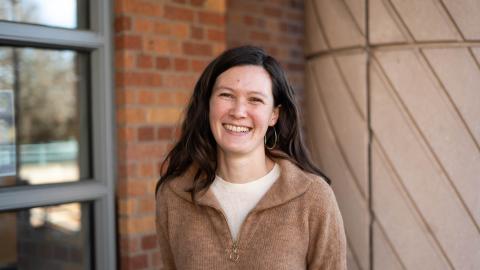Two teams of researchers from the UW Department of Environmental & Occupational Health Sciencs (DEOHS) and their partners recently received grants from the UW Population Health Initiative for projects focusing on supporting healthy home environments in Washington’s Yakima Valley and understanding the connections between community-based land management and disease outbreaks in Brazil.
“We continue to receive a range of innovative, interdisciplinary project ideas to address pressing population health challenges through our pilot funding calls,” shared Ali H. Mokdad, the university’s chief strategy officer for population health and professor of health metrics sciences.

Improving children's health in the Yakima Valley
DEOHS faculty members Catherine Karr and Elena Austin and collaborators received one of four Tier 2 pilot grants of $65,000 for their project on community-engaged home environmental assessments in Washington’s Yakima Valley.
The team was motivated by calls from community leaders in the Yakima Valley to address numerous environmental health hazards in this agricultural region, such as pesticides, lead, drinking water contaminants and air pollution including wildfire smoke.
The project builds on the team’s successful Home Air in Agriculture Pediatric Intervention (HAPI) study, which engaged with community members in the Yakima Valley to test solutions such as HEPA air cleaners to reduce air pollution in homes and improve health for children with asthma.
The team, which includes leaders of community organizations Northwest Communities Education Center (NCEC)/Radio KDNA and Yakima Valley Farm Workers Clinic and researchers from DEOHS, the UW Department of Health Systems and Population Health, Heritage University and the Yakima Health Department, aims to prevent prenatal and early life exposure to these hazards and adverse health effects in children.
They will recruit participants to pilot a home environmental assessment protocol and share their concerns through surveys. The project will test a “healthy home” intervention to target priority exposures, and run focus groups to evaluate the intervention. This pilot project sets the stage for a future, larger-scale evaluation of the approach.
The team includes:
Catherine Karr, Department of Pediatrics and DEOHS
Linda Ko, Department of Health Systems and Population Health
Elizabeth Torres, Northwest Communities Education Center (NCEC)/Radio KDNA
Allison Sherris, DEOHS
Christine Loftus, DEOHS
Elena Austin, DEOHS
Adriana Perez, Yakima Valley Farm Workers Clinic
Corbin Schuster, Heritage University
Kait Wolterstorff, Yakima Health Department
Maria Carriedo, community member and early child care provider in Toppenish, WA
Socioecological conflict in Brazil
DEOHS faculty members Julianne Meisner, Peter Rabinowitz and Kevin Bardosh and partners received one of four $25,000 Tier 1 pilot grants to investigate the impact of land tenure on ecosystem management and health, particularly concerning the spillover of novel viruses into human populations.
Ecosystems in Brazil managed for centuries by Indigenous and Quilombola communities—including the Amazon, Pantanal and Cerrado biomes—have shown resistance to ecological degradation. More recently, Brazil’s government has rolled back environmental protections in these regions, leading to forest fires and outbreaks of insect-borne diseases.
The team will examine whether ecosystem preservation by Quilombola communities helps resist the emergence of such pathogens. Researchers at DEOHS, the UW Department of Global Health, the State University of Campinas and University Center of Viçosa will collaborate with Landesa, a nonprofit organization focused on land tenure advocacy.
The team includes:
Julianne Meisner, Department of Global Health and DEOHS
Peter Rabinowitz, DEOHS
Kevin Bardosh, DEOHS
Tabata Berg, State University of Campinas
Emilio Nieto, University Center of Viçosa
Krista Jacobs, Landesa



